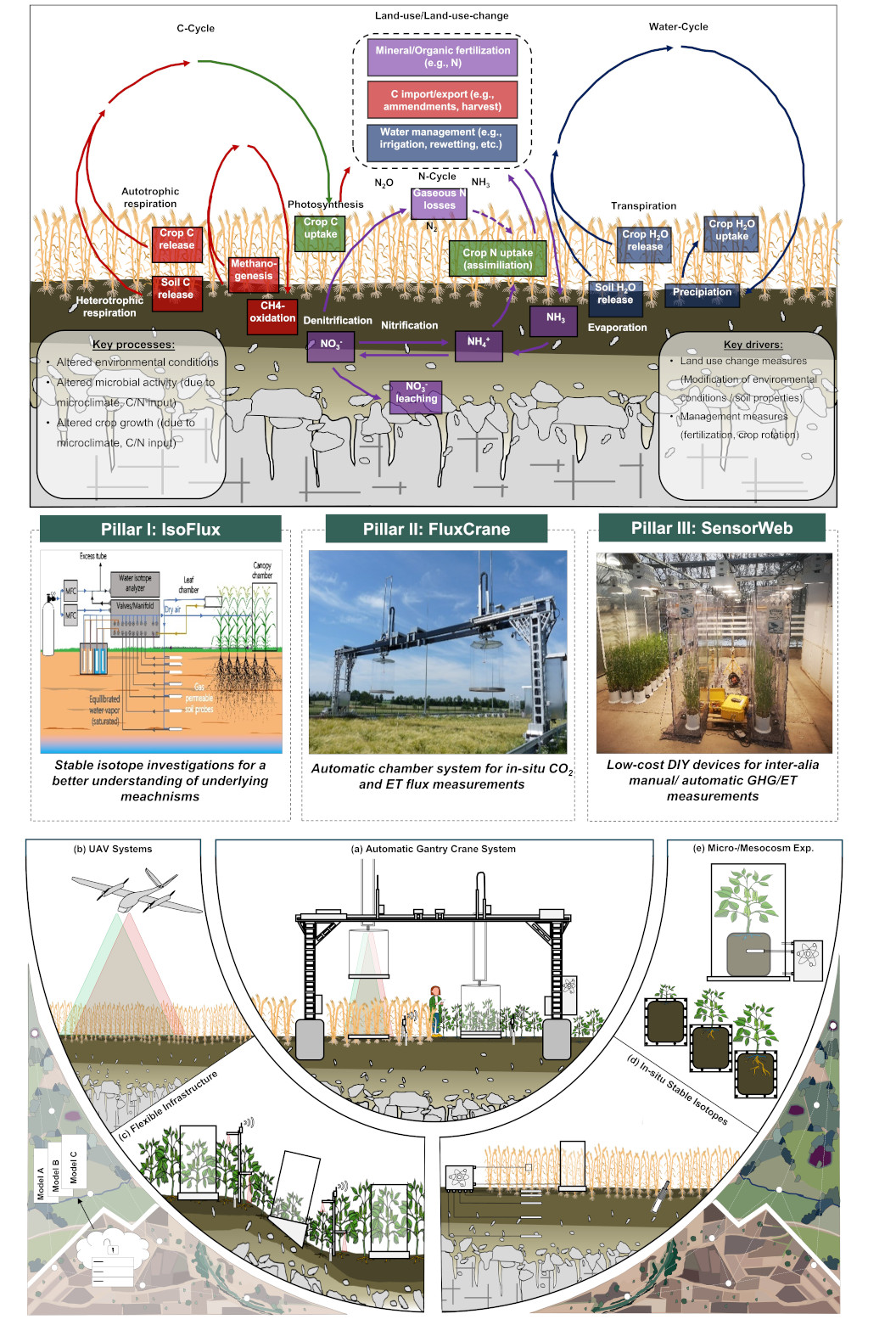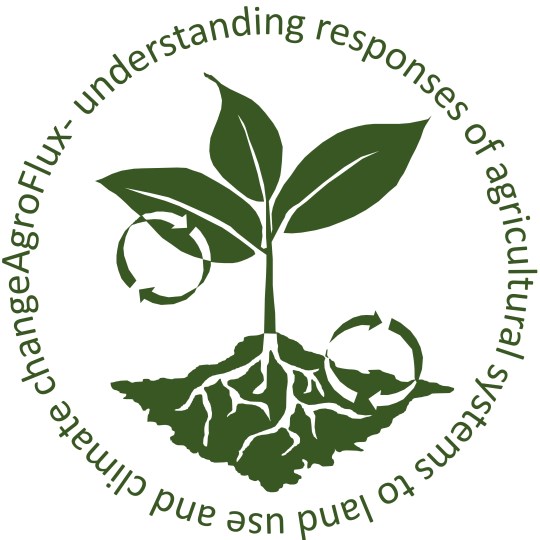AgroFlux® is an integrated sensor-based research platform designed to explore carbon, nitrogen, and water cycling in agroecosystems. By combining high-precision infrastructural measurements systems like FluxCrane and IsoFlux with the scalable, low-cost approach such as aimed for in SensorWeb, AgroFlux enables multi-scale environmental monitoring - from controlled experiments to real-world farming systems. Its modular design supports process-level insights and global adaptability, helping bridge the gap between advanced science and practical, climate-smart agricultural solutions.

For a more detailed view, please click on the image.
The AgroFlux® research platform studies C, N, and water cycling in agroecosystems. Key components: a) 'FluxCrane' (automated gantry crane for GHG/ET fluxes, spectral/IR sensing); b) UAV remote sensing for upscaling; c) 'SensorWeb' (IoT network, proximal sensors); d) 'IsoFlux' (isotope monitoring); e) experiments on soil-plant-atmosphere processes. © Mathias Hoffmann (adopted according to
Hoffmann et al., 2025)
News
Hoffmann, M., Chen, C., Butterbach-Bahl, K., Ewert, F., Holz, M., Kiese, R., Augustin, J. & Dubbert, M., Presentation of Low-Cost DIY Ecophysiological Measurement Equipment on the ZALF Summer Party 2025 At the ZALF Summer Party 2025, a starter set of low-cost, DIY ecophysiological sensors (as part of SensorWeb) - including a mini climate station for PAR, humidity, temperature and pressure, a CO₂/ET logger for closed-chamber measurements, and a custom NDVI probe - to empower hands-on field monitoring was presented. DIY Ecophysiology Tools Deployed in a new Hub in Ghana to Track Crop and Emission Impacts Start of two new field trials in Tamale, Ghana, in cooperation with CSIR-Savannah Agricultural Research Institute. These trials act as a central hub for low-cost DIY ecophysiological measurement equipment developed within the SensorWeb pillar of the Agroflux sensor platform. The field trials test different soil amendments across groundnut-maize, groundnut-sorghum, sole maize, and sole sorghum cropping systems during the next 3 years. A second Hub in Central Benin will follow later this year. The Ecophysiology of Water and Matter Cycling group (ECO) at the Leibniz Centre for Agricultural Landscape Research (ZALF) has unveiled a new open-source handbook to help build affordable environmental sensors paired with a custom app. Targeting sustainable land management and scientific research - especially in under-resourced regions - the handbook focuses on accessibility, ease of use, and reproducibility. Users are encouraged to customize designs and contribute improvements via email, fostering a collaborative community. This initiative aims to make environmental monitoring and data collection more accessible worldwide.
|

